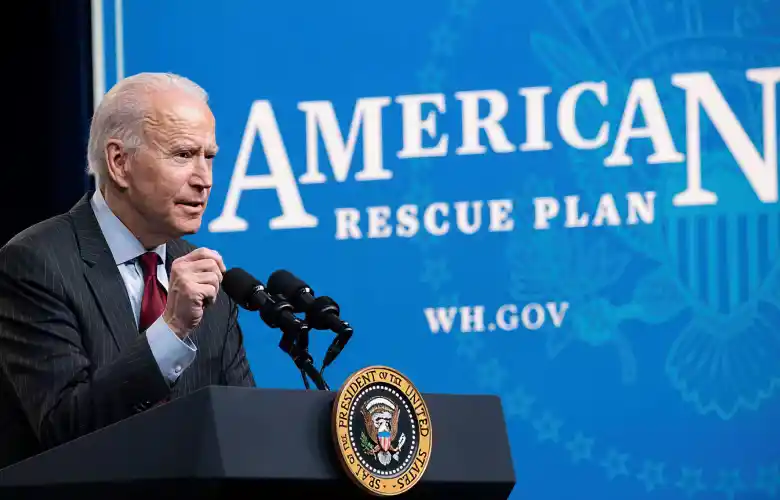How U.S. Nonprofits Can Secure ARPA Healthcare Grants in 2025
A Historic Opportunity for Healthcare Nonprofits
The American Rescue Plan Act (ARPA), enacted in 2021, allocated billions to support U.S. communities recovering from the COVID-19 pandemic. Although significant disbursements occurred earlier, many ARPA healthcare grants remain available at the state and county levels in 2025. For nonprofits focused on community and behavioral health, ARPA is a critical, time-sensitive funding source to advance healthcare access and equity.

What is the ARPA Healthcare Grants Fund
ARPA healthcare funds typically target :
1. Behavioral & Mental Health Services
- Expanding counseling, crisis teams, and school-based mental health programs.
2. Public Health Infrastructure
- Upgrading community health centers, telehealth, and vaccination capacity.
3. Health Equity Initiatives
- Tackling disparities in rural and underserved urban populations.
4. Workforce Development
- Recruiting and retaining healthcare workers in areas of shortage.
5. Community-Based Health Programs
- Outreach to high-risk populations, chronic disease prevention, and mobile health units.
Past Success: Greater Lawrence Family Health Center (GLFHC)
GLFHC, a leading community health center in Massachusetts, secured $2 million in federal funding in 2022 through Congressional appropriations. This funding supported the expansion and renovation of their West Lawrence Clinic and Pharmacy, enhancing access to affordable, high-quality healthcare for a predominantly low-income, Spanish-speaking population.
How Nonprofits Can Win ARPA Healthcare Grants: Take GLFHC as an Example
In their successful ARPA grant proposal, GLFHC focused on:
- Data-Driven Justification : Highlighting increased post-pandemic behavioral health needs among underserved groups.
- Health Equity : Providing culturally competent care to immigrant and minority communities.
- Compliance Readiness : Demonstrating capability for federal quarterly reporting and audit adherence.
- Strong Partnerships : Coordinating with area hospitals, schools, and community organizations to deliver comprehensive services.
Action Steps for Your Nonprofit
- Utilize local health and demographic data to illustrate urgent healthcare needs clearly.
- Emphasize your program’s focus on underserved or high-risk populations.
- Prepare robust compliance and reporting systems for federal grants.
- Build and document strong collaborations within your community.
- Craft a compelling narrative that combines quantitative impact with human stories.
How to Apply for ARPA Healthcare Grants in 2025
- Check Local Portals :
Most ARPA funds are distributed locally to states, counties, and municipalities. It is essential to monitor your state's and county's ARPA websites or portals for grant announcements and specific deadlines. This aligns with guidance from the U.S. Treasury and state fiscal recovery fund pages. - Align with Funding Priorities :
Ensure your project addresses specific ARPA healthcare priorities such as mental health services, rural healthcare access, public health infrastructure, or workforce development. Tailoring your proposal around these priorities increases your chances of success. - Prepare Impact Narratives :
Develop strong, evidence-based impact narratives supported by local health data and collaboration documentation. This is essential to meet the expectations laid out by federal and state funders. - Plan for Rigorous Reporting :
ARPA grants require strict adherence to quarterly and annual federal reporting and compliance audits. Being prepared with systems and processes to meet these deadlines is critical.
Timeline for ARPA Healthcare-Related Grant Funding (Federal Deadlines)
ARPA Healthcare Grants Timeline and Key Deadlines
- December 31, 2024: Obligation Deadline for State and Local Fiscal Recovery Funds (SLFRF)
States and local governments must formally commit all allocated ARPA SLFRF funds by this date to avoid forfeiture. This means executing contracts, purchase orders, or binding agreements, ensuring that funds are legally obligated.
U.S. Treasury - SLFRF Obligation Deadline - March 31, 2025: Spending Deadline for Medicaid Home and Community-Based Services (HCBS) ARPA Funds (Section 9817)
All states are required to fully expend ARPA HCBS funds by this date, supporting improvements in Medicaid HCBS programs. Some extensions have been granted to select states for ongoing projects.
Medicaid.gov - ARPA HCBS Guidance - March 31, 2025: Pennsylvania ARPA Provider Reimbursement Spending Deadline
Providers in Pennsylvania must utilize their ARPA grant funds by this date to remain eligible for reimbursement.
RCPA Official - ARPA Deadlines - May 31, 2025: Final Pennsylvania Reimbursement Submission Deadline
This is the last day for Pennsylvania providers to submit reimbursement claims for ARPA funds spent by the March deadline. Claims submitted after this deadline will not be accepted.
RCPA Official - ARPA Deadlines
Note: Nonprofits should continuously verify specific deadlines, extensions, and requirements with their respective state or local ARPA funding portals, as dates may vary depending on the timing of funding obligations and program specifics.
Why Pillar by SocialRoots.ai Gives You an Edge
Successfully managing ARPA grants demands stringent data tracking and timely reporting. Pillar by SocialRoots.ai enables nonprofits to:
- Track health and social outcomes at the patient and community levels.
- Automate ARPA-required federal reporting processes.
- Centralize multi-partner collaboration data.
- Demonstrate health equity impacts with segmented analytics.
This transparency reduces funder risk perception and positions your nonprofit as a trustworthy, high-impact ARPA partner.
Conclusion: Don't Miss the Final ARPA Deadlines
By preparing a data-backed, equitable, and collaborative proposal—and leveraging tools like Pillar by SocialRoots.ai to track outcomes, manage reporting, and centralize partnership data your nonprofit can maximize its chances of winning ARPA funding and expanding its healthcare mission while this historic opportunity lasts.
You can secure the resources to expand your healthcare mission while this historic opportunity lasts.